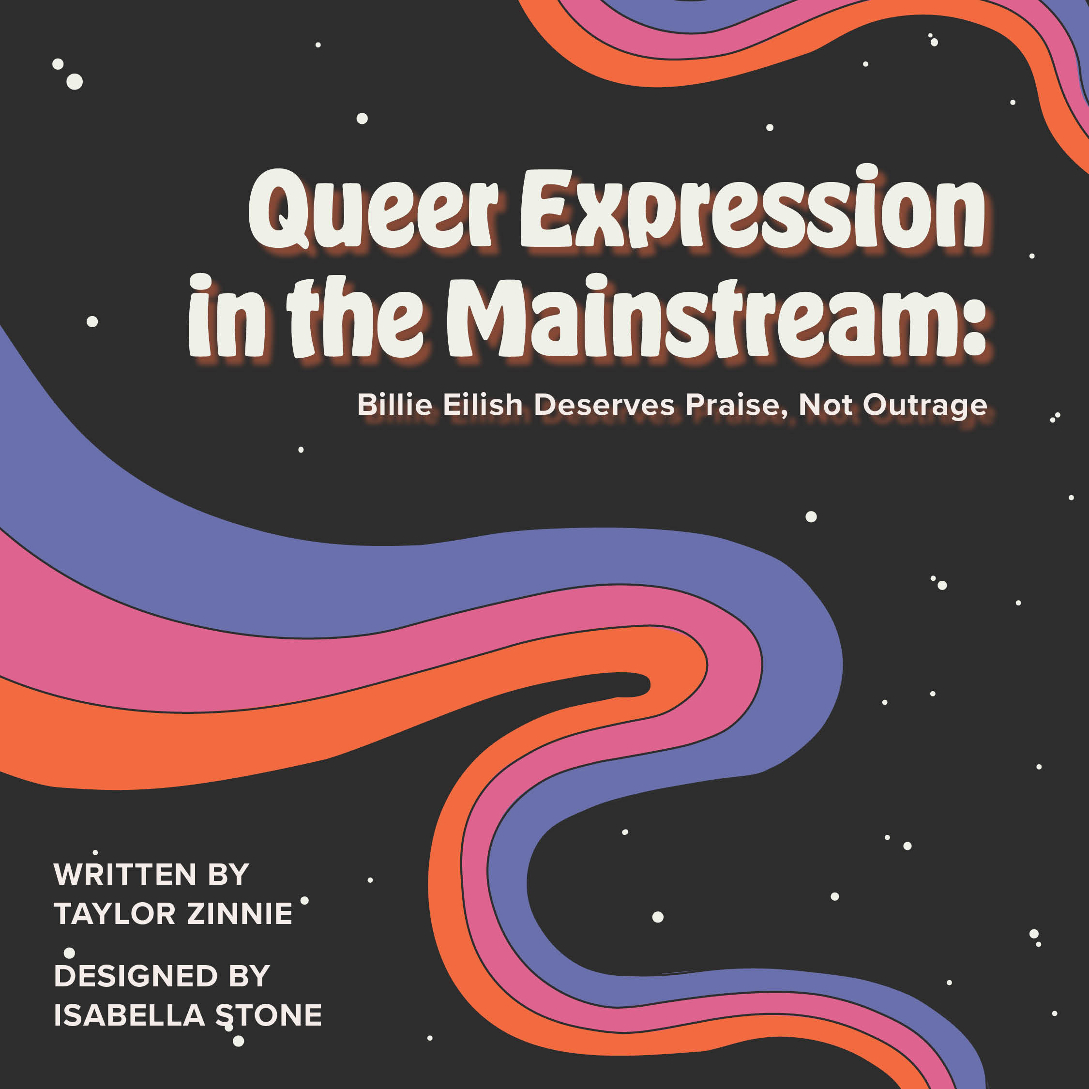
After the release of her recent collaboration with pop sensation Charli XCX, Billie Eilish has received a surge of backlash on social media. Fans have taken issue with the content of Eilish’s verse on the remix of “Guess,” a song originally released on the extended version of Charli’s latest album, “BRAT.” A track rife with innuendos, Eilish ends her portion of the single with the line “Charli likes boys but she knows I’d hit it.” This lyric was quickly met with claims of predatory behavior as Eilish was accused of invalidating Charli’s heterosexuality for commercial gain. One TikTok user in particular slammed her for “reducing girls to mere objects.”
The “Guess” scrutiny comes just months after Eilish publicly came out as queer. Having mentioned her attraction to women in her cover story with Variety in November, she was forced to confirm her sexuality on a red carpet, saying “Why can’t we just exist?” Eilish had no intention of making a gesture of coming out, but constant probing from fans and pressure to label herself prevented her from discussing her identity on her own terms. Frustratingly, this sentiment rings true for many celebrities, such as “Heartstopper” actor Kit Connor, who also felt forced to out himself amid queerbaiting allegations.
Since coming out, Eilish has grown more comfortable speaking out about her sexuality both in interviews and in her music. Her recent album, “Hit Me Hard and Soft,” contained several songs with overtly sapphic themes. In particular, the song “Lunch” received attention for its unequivocal depiction of queer intimacy and eroticism, containing bold lines such as “I could eat that girl for lunch / Yeah, she dances on my tongue.” Queer representation in music and media has been historically scarce, so the growing visibility of artists who do not fit the heteronormative mold is refreshing. Eilish is fully entitled to express her sexuality however she chooses, particularly after societal pressure stripped her of the opportunity to come out on her own timeline. Queer culture is hers to reclaim, and it is largely improbable that Charli would have approved Eilish’s verse if she felt disrespected by it.
The controversy surrounding “Guess” is not only unfounded but also reflective of a larger societal discomfort with queer themes in the mainstream. At its core, the issue is a lack of LGBTQ+ content and individuals in the spotlight. Artists like Eilish are an anomaly in mainstream pop music, and critical responses indicate society’s difficulty coping with challenges to traditional norms. Though representation is improving, LGBTQ+ musicians have yet to receive the same visibility as straight artists, and until that is achieved, the mainstream may struggle to accept queer expression.
This situation serves as an example of the double standards that dictate how queer content is received compared to heteronormative media. Intimacy between heterosexual individuals is a subject that dominates the mainstream music industry, very rarely being perceived as inappropriate or harmful. Sabrina Carpenter recently released “Short n’ Sweet,” an album riddled with straight sexual euphemisms. In “Juno,” possibly the most suggestive track of the lot, she directly references pregnancy and sex positions, going as far as to declare, “I’m so f*ck*n’ horny.” Carpenter’s raunchy lyricism was met with a contrary reaction to Eilish, receiving praise for her wit and embrace of sex positivity. We are hesitant to allow queer people, particularly queer women, the same freedom to be sexual in their music as their straight counterparts. Billie Eilish is not inappropriate, predatory, queerbaiting or sex addicted — she is merely a queer woman shamelessly singing about queer experiences.
The growing visibility of LGBTQ+ artists on mainstream platforms is long overdue and refreshing. It is time that we, as a society, make room for queer people to openly express themselves and embrace their sexuality through their art. Uncensored, raw portrayals of queerness from artists such as Eilish are instrumental in creating a space where queer people universally feel safe and comfortable in their own expressions of identity.
Instead of criticizing, we should thank Eilish and countless other creators for showing that queerness is not something to be hidden or censored. Representation of queer eroticism and intimacy is no less important than heterosexual experiences. While there is still a long way to go, such portrayals are an invaluable step toward ensuring that all audiences see themselves in the media.